
RBA Update October 2020
The Reserve Bank of Australia (RBA) holds the official cash rate at 0.25 per cent following its monthly monetary policy board meeting.
Read MoreStay informed with the latest insights in home loans and property
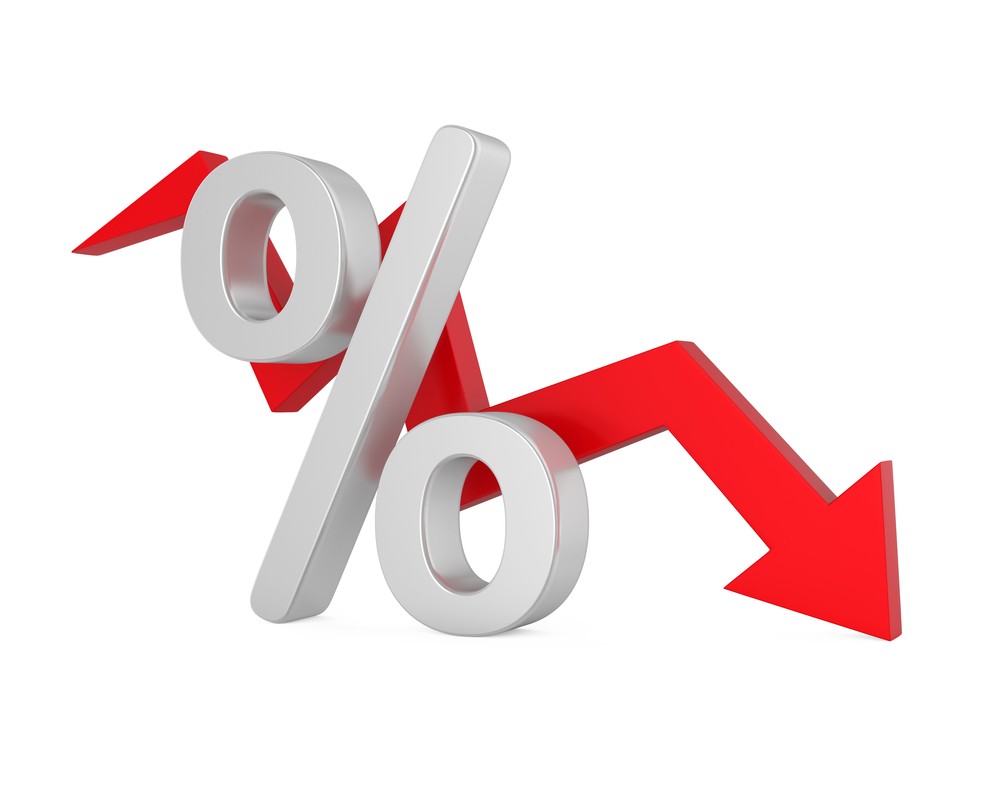
The Reserve Bank of Australia (RBA) cuts the interest rate to a record low 0.10 per cent following it's monthly monetary policy board meeting

The Reserve Bank of Australia (RBA) holds the official cash rate at 0.25 per cent following its monthly monetary policy board meeting.
Read More
The Reserve Bank of Australia (RBA) holds the official cash rate at 0.25 per cent following its monthly monetary policy board meeting.
Read More
The Reserve Bank of Australia (RBA) holds the official cash rate at 0.25 per cent following its monthly monetary policy board meeting.
Read More
While it's not uncommon for property prices to dip as economic downturns play out, capital city home values have increased in the years following
Read More
Combined house prices across capital cities remained on an uptrend in March, but the uncertainties from the COVID-19 outbreak dampened the supposed gains.
Read More
The weaker economic outlook due to the coronavirus has changed the sentiment of buyers towards the housing market, according to a poll by CoreLogic.
Read More
With the federal government is exploring efforts to protect tenants during the COVID-19 outbreak, the REIA has called for a rental support package...
Read More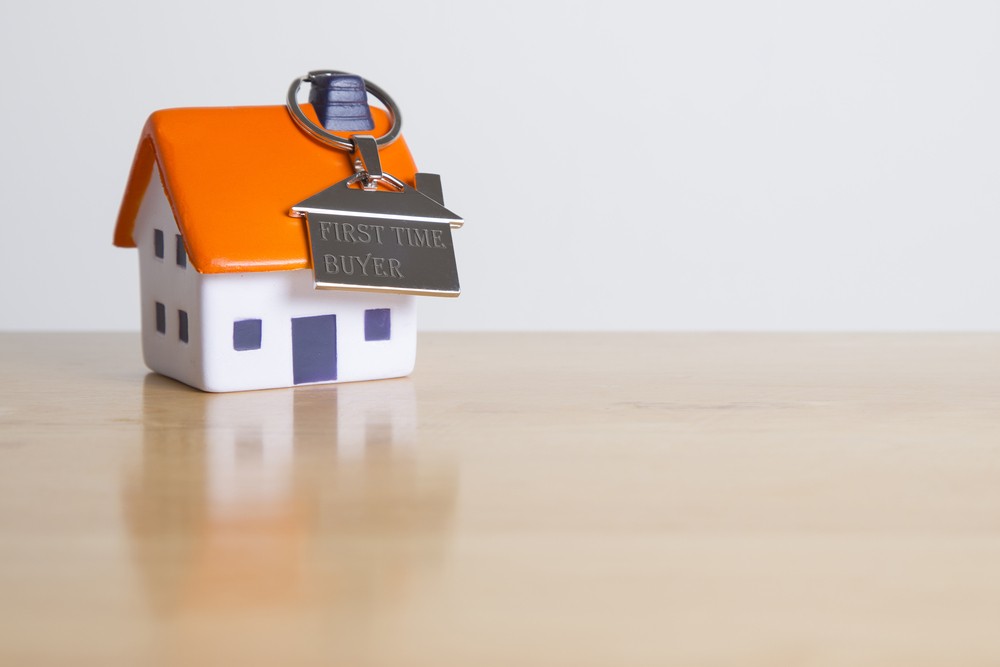
How the unfolding COVID-19 situation affects the property market depends on how long it takes to not only contain the virus, but for sentiment to recover.
Read More
Giving back to others in need helps to remind us that we’re not alone, we've listed some great ways to give back, even while following social distancing.
Read More
The banks have agreed to extend their loan relief policies to encapsulate a larger portion of borrowers affected by the coronavirus pandemic.
Read More
The government and financial regulators are urged to work with financiers to help Australians unlock the equity of their properties.
Read More
Landlords are in need of support from the government to be able to assist their tenants amid the COVID-19 pandemic, according to PICA.
Read More
A redraw facility is a feature available on some home loan products which allows you to access extra repayments you’ve made on your home loan.
Read More
This year Australia has suffered through some of the most destructive bushfires on record. What can you claim in the event of fire damage?
Read More
To our grandparents the way we now spend and borrow money is completely foreign. In their day if you couldn’t afford it you didn’t buy it, simple.
Read More
Despite a drop in sales volumes over the September 2019 quarter, Adelaide continues to be a market on the rise, showing positivity all around.
Read More
When it comes to renovating, many people place the garden low on the list of priorities. However a garden reno should be similar quality to your house reno.
Read More
It’s important to have a practical mindset when you’re working on a bathroom space renovation, because functionality is crucial.
Read More
Some tips on how to best decipher the home loan process and how to best utilise growth figures in the housing market to their advantage.
Read More
One in three Australians value travel over home ownership. The respondents were asked what “big-ticket” items they’d be willing to go into debt for.
Read More
Financial comparison site Canstar surveyed over 2,000 Australians to get insight into current trends and how they’re likely to play out into the future.
Read More
The National Housing Finance and Investment Corporation has released the list of lenders for first round of the government’s First Home Loan Deposit Scheme.
Read More
The year 2020 may very well be the year of the first home buyer, with first home buyers to soon have the benefit of a deposit scheme.
Read More
According to data for August 2019, first home buyers comprised the largest proportion of national owner occupier mortgage activity since early 2012.
Read More
First home buyers will be able to make the next step to buying their own home, thanks to the Government's election promise of a loan deposit scheme for those who have saved a five per cent deposit.
Read More
5 Tips To Present The Most Attractive Offer. The easiest way to make sure your offer on that house is noticed.
Read More
Australia's housing market appears to be at its most affordable level in more than five years despite recording a rebound in prices over the recent months.
Read More
The September 2019 quarter CPI figure continues to be good news for home buyers and renters, according to the Real Estate Institute of Australia (REIA).
Read More
The First Home Owner scheme has now passed to help first home buyers get into the property market and help with the biggest hurdle, the deposit.
Read More
The Australian economic conditions have seen signs of improvement with household lending increasing over the last quarter.
Read More
First home or rentinvest? Getting into the property market now should be your priority with interest rates dropping for the third time.
Read More

The laundry is one of the rooms in a home that is often missed when it comes to renovations. You don't have to spend much to enhance the space.
Read More
Due to many market conditions across Australia, there is evidence that there is potential for more rate cuts in the coming month.
Read More
As the weather heats up, so too does the Australian property market. Here's what we can expect for the property market this spring.
Read More
As the weather heats up, so too does the Australian property market. Here's what we can expect for the property market this spring.
Read More
Australia's market has had a boost in confidence with expected property price growths, however price growth could post changes to the cash rate.
Read More
There are many factors lenders consider when determining your loan amount and serviceability is one of the most important.
Read More
Australia's property market has steadily improved, some suburbs particularly have robust sales volumes and sustained price growth.
Read More
The kitchen is often the first room a potential buyer looks at, which is why a kitchen renovation can increase appeal and add value to your home.
Read More
The mortgage broker channel has recorded its highest ever residential home loan market share for the June quarter. Brokers claimed 55.8% of the market share over the April to June quarter,
Read More
The housing market conditions are seeing stabilisation on the horizon with evidence that supply of new homes is forecast to meet demographic requirements.
Read More
In the digital age, making a strong visual first impression is so important. With property styling, sellers can rise above the competition and negotiate the best possible profit.
Read More
Home loans for both owner-occupied and investor dwellings increased for the first time in over a year along with sales and property prices.
Read More

When preparing your budget for renovations, you should understand what is claimable this tax time as there are difference between renovations and repairs.
Read More
There are many costs involved in buying property, one of which is the initial deposit. A deposit of 10% of the purchase price is what most aim for.
Read More
Annual sales volumes are lower, however monthly sales have risen and Adelaide in particular is trending above average with a strong property market.
Read More
Consumers are overestimating their ability to understand their finances, meaning that financial practitioners must demonstrated high,ethical standards.
Read More
If you haven't owned your investment property for a full year you can still claim on depreciation deductions this tax time.
Read More
Styling your home can not only increase your chances of selling your property faster, but it can also add overall value to your property.
Read More
The living room is one of the most important rooms in a house, it is a place for relaxation. Here are some tips to help you create your desired living room.
Read More
In our hective lives, everyone needs relaxation time. These top tips will help you create your own spa and make a luxurious atmosphere in your own home.
Read More

There are so many positives with the current Australian market with low interest rates, low inflation, low market sentiment and low property prices.
Read More
There are many things that help make a market thrive. Here are the reasons why everyone benefits when the economy is thriving.
Read More
Home loan approvals is a cause of celebration and research shows similarities to the feelings of euphoria that you get from winning and knocking off early.
Read More
When prices are low first home buyers, and even second home buyers, will find they get better value than what it would have done 12 months ago.
Read More

Property values have experienced their smallest national month-on-month fall in a year. However, Adelaide persisted to perform and avoide the decline.
Read More
To achieve a successful property sale, vendors should realisticly price their property and be prepared to meet Australian market expectations.
Read More
With the Coalition being re-elected in the Federeal election there are many positive certainties for property investors and also for the property market.
Read More
Negative gearing remains unchanged after a surprise win in the federal election. This result was a sign that Australian's strongly value property ownership.
Read More
Recently released data depicts that morgage brokers have continued to claim market share despite the recent challenging times for the broker industry.
Read More
Boosting your property's rent per week can be a dilemma for every landlord will face, especially if you already have great tenants.
Read More
Australian housing market varies across the nation, with property values falling in areas such as Sydney and remain strong in others.
Read More
With tax time approaching fast, you will need to know what you can claim as it is the key to increasing cash flow from an investment property.
Read More
Australians are property obsessed and are spending large amounts of time focussing on property each week, even more than the time they spend at the gym.
Read More

With tax time fast approaching you should be looking to maximise the deductions for your investment property. Here are the top tax time tips to help you.
Read More
Adelaide's property market is booming with the cities strong value-for-money proposition and consistency, making it a stand out of all states.
Read More
Change in median dwelling prices across Australia was moderate year-over-year, according to realestate.com.au's April Property Outlook report.
Read More
ATO announced that it has made rental deductions a top priority in 2019 and would double the number of audits scutinising rental deductions.
Read More
The Australia's population is becoming more diverse with a larger increase in overseas-born residence than Australian born residence.
Read More
Data from property marketing organisation indicate the Australian suburbs that are placed to experience a rise in property values over the next three years.
Read More
Adelaide is starting to attract more and more investors because of the city's fantastic dollar-for-dollar value with rental yields increasing.
Read More
Perth and Adelaide have been named the two cities with the most affordable rents and national weekly rents have risen during the first three months of 2019.
Read More
The Australian property and stock marets have been struggling and have led to the largest decline in household wealth in seven years.
Read More
Australia's capital city achieved a higher than average livability score with most residence being satisified with the top five factors of livability.
Read More
PCA and REIA voice the impacts that the proposed negative gearing changes will have on the jousing markets across Australia.
Read More
Two-thirds of investors would shy away from purchasing a second-hand property if they could no longer claim negative gearing benefits.
Read More
While there are many benefits to buying off-the-plan, there are many questions buyers should ask to help better understand buying off-the-plan.
Read More
Deciding whether to sell via an auction or a private sale can be a dificult decision, which is why it is important to understand the differences.
Read More
Most capital cities have experienced property values fall with the current housing market weakening over the past few years.
Read More
Implementing the misguided recommendation from the Hayne Royal Commission to remove trail comissions for mortage brokers will set the home loan market back.
Read More

Property prices fall accross Australia while Adelaide and Hobart are the two cities that are resisting the property market trend.
Read More
Outdoor renovation can make a huge impact as first impressions are everything, if you can create a space that is functional, comfortable and stylish.
Read More
Kitchen renovation can make the biggest impact in renovating terms if you can create a space that is functional, comfortable and stylish.
Read More
Suburbs with property values under $500,000 are increasingly popular. Here are five growth suburbs for under $500,000 with great investment potential.
Read More
For many, home ownership is more important to people, but most believe it's unachievable and are under the mindset that they will never own their own home.
Read More
For many, the aesthetics and function of a bathroom is one of the most important factors they consider when looking to purchase.
Read More

Home designs that are predicted to be the biggest decor trends to watch out for in 2019, according to two interior designers
Read More
Agents say property prices are likely to fall in suburbs moved out of the zones for two of Adelaide's most sought-after schools.
Read More
When buying an investment property, it's a good idea to get a building and pest inspection before you buy and understand what inspections don't cover.
Read More
Annual Top 100 Suburbs list is the pre-eminent guide to property investment markets in Australia, based on data on thousands of suburbs across Australia.
Read More
If you're going to sell your home and don't know one sales agent from the next, there are a few things you should know before retaining one.
Read More
Staging your home for sale is a popular avenue to prepare a home for sale, but it can be an expensive option. Here's how you can do it on a budget.
Read More
Renovation is one property investment type that stretches across the public's demographic divide - both owners and non owners.
Read More
Benefits of downsizing from cutting back on maintenance to having more moeny in your pocket to invest for retirement and that lifestyle you're wanting
Read More
Recent statistics from the Reserve Bank of Australia show that the number of credit card accounts dropped to 15.97 million in November in Australia.
Read More
Homeowners and prospective homebuyers may now breath a sigh of relief as fears of a housing-market crash continue to dissipate.
Read More
Mortgage brokers have achieved their highest residential home loan market share of 59.1% of all residential home loans during the September 2018 quarter.
Read More
There are a number of reasons why it pays to see your valuation come in at the upper reaches of your property’s value range.
Read More
The key to renovation success is getting the fundamentals right.
Read More
Neighbourhood gentrification entails a gradual but significant change in the socio-economic profile of homebuyers active in a particular suburb or region.
Read More
Australia’s home renovations hit a 14-year high driven by very low and stable interest rates, as well as stricter credit conditions.
Read More
One-third of first home buyers are choosing to purchase an investment property rather than a first home to move into.
Read More
The problem is making sure your Christmas cheer doesn’t become New Year pain when you get your credit card bill.
Read More

If you are younger than 30 and don’t have decent savings or a property, its time to start to get conscious and think ahead.
Read More
When you were searching for your current home, were you definite about what style of home you wanted?
Read More
The third quarter in South Australia recorded a decline in property sales, but industry body the Real Estate Institute of South Australia (REISA) is "optimistic" about the market.
Read More
There are many additional variables that will determine how a location becomes valuable and whether it will remain so.
Read More
ndependent property valuation and advisory company Herron Todd White recently released its November issue of Month In Review, which showed that Adelaide is regarded as a rising market in terms of houses but in the bottom when it comes to units.
Read More

Australian homes have evolved over time but the ‘Great Australian Dream’ has remained the same.
Read More
Have you ever wondered how to get access to exclusive deals before they hit the market?
Read More
The Real Estate Institute of Australia (REIA) says the latest CPI figures brings good news for renters and home buyers, as interest rates remain stable.
Read More
The Real Estate Institute of Australia (REIA) says the latest CPI figures brings good news for renters and home buyers, as interest rates remain stable.
Read More
Are you renovating for personal use, or to lease the home or sell it? This will help you determine the scope of the work, the materials you need to use, and the appropriate budget to cover what you want to achieve.
Read More
The Hamptons style captured our hearts a long time ago - here's how to replicate the Hamptons look in your home.
Read More
When it comes to buying an investment property, there are a number of considerations that you should take into account.
Read More
With the media constantly reminding us we’re now in the downturn phase of the property cycle, what lessons are there to learn from past property downturns to help navigate the times ahead?
Read More
Have you ever wondered how to get access to exclusive deals before they hit the market?
Read More
As prices fall in markets across the country, tuning out of politics is simply not an option for the astute property owner with much at stake in the coming election.
Read More
Residents in strata-titled apartments or townhouses need to be aware of what they can and can’t do with their unit with even the wrong choice of curtains causing costly consequences, says Archers the Strata Professionals.
Read More
Almost one in five Aussies are missing out on bargains because they are scared off by auctions.
Read More

As spring property season approaches, Mozo property expert Steve Jovcevski gazes into his crystal ball and casts his predictions on property growth and decline over the busiest property sale period of the year.
Read More
Bradley Beer of BMT Tax Depreciation discusses why deductions and assets are missed, and what the solution is.
Read More
Having homes styled before sale is becoming increasingly popular, with both stylists and real estate agents strongly recommending it to anyone looking at selling their home.
Read More
Stronger new home building, off the back of strong population growth, is continuing to drive the improvement in economic conditions in Australia
Read More
Residents in strata-titled apartments or townhouses need to be aware of what they can and can’t do with their unit with even the wrong choice of curtains causing costly consequences, says Archers the Strata Professionals.
Read More
Malcolm Gunning, President of the Real Estate Institute of Australia (REIA), and Leonard Teplin, Director of Marshall White debate the potential implications the most recent leadership spill could have for the residential property market.
Read More
Generation Y is expected to reshape the residential property market over the coming decades, with demand for bigger apartments and townhouses expected.
Read More

Small changes in the home and garden can make a huge difference when it comes to selling price.
Read More
We want women to engage with their finances and have real conversations about money.
Read More
With first impressions a crucial element in the purchase journey, it is the styling of a room that can make or break a buyer’s opinion of the home.
Read More
Adelaide may not have the strongest economy in the country, but it compensates by marrying affordability with convenience. Read this August Market Report.
Read More
If you’re looking for quick fixes that will add high impact to your home’s aesthetic, check out our budget-friendly interior design hacks room-by room
Read More
Whether you’re renovating for investment purposes or to create a sanctuary for yourself, these reno tips could help elevate your bedroom to the next level.
Read More
South Australia was able to carry over its record breaking median price from last quarter to June quarter this year.
Read More
Housing affordability is about ‘supply and demand’ and for most of this century there have been constraints on new home building...
Read More
An unprecedented volume of new homes has started pacifying the swelling prices, thereby improving the housing market’s affordability.
Read More
An unprecedented volume of new homes has started pacifying the swelling prices, thereby improving the housing market’s affordability.
Read More
Buying your first home can be incredibly stressful, but it can help when you have a list of things to look out for. Here are four important tips.
Read More
Many real estate agents swear that spring is the best time to sell. But is that really the case? When is the best time to sell?
Read More
When it comes to refinancing, homeowners across the country are getting nasty shocks upon discovering their properties aren’t worth as much as they thought.
Read More

The first impression of a property can be make or break - here's how to give your property the best chance of selling.
Read More
No matter where you are in life, it's always a good idea to save money! Whether you are saving for a special purchase or want to book a trip
Read More
The June 2018 quarter results released by the Real Estate Institute of South Australia (REISA) reveals confidence has returned to the market.
Read More
Home prices remained unchanged over the past week as combined median home prices across Australia's five mainland state capitals recorded a flat growth
Read More
If you feel like finding an affordable home today is a fool’s errand, you might envy those Australians who have been born in the last few years.
Read More
Homes embody how we live and see ourselves. And these spaces evolve when we focus on what makes us happy. What does home mean to you?
Read More
A run from expensive real estate to more affordable property is one of the primary reasons for the social shift in favour of regional areas of Australia.
Read More
Rentvesting is an increasingly popular strategy which provides people the opportunity to acquire higher and faster net worth through property ownership.
Read More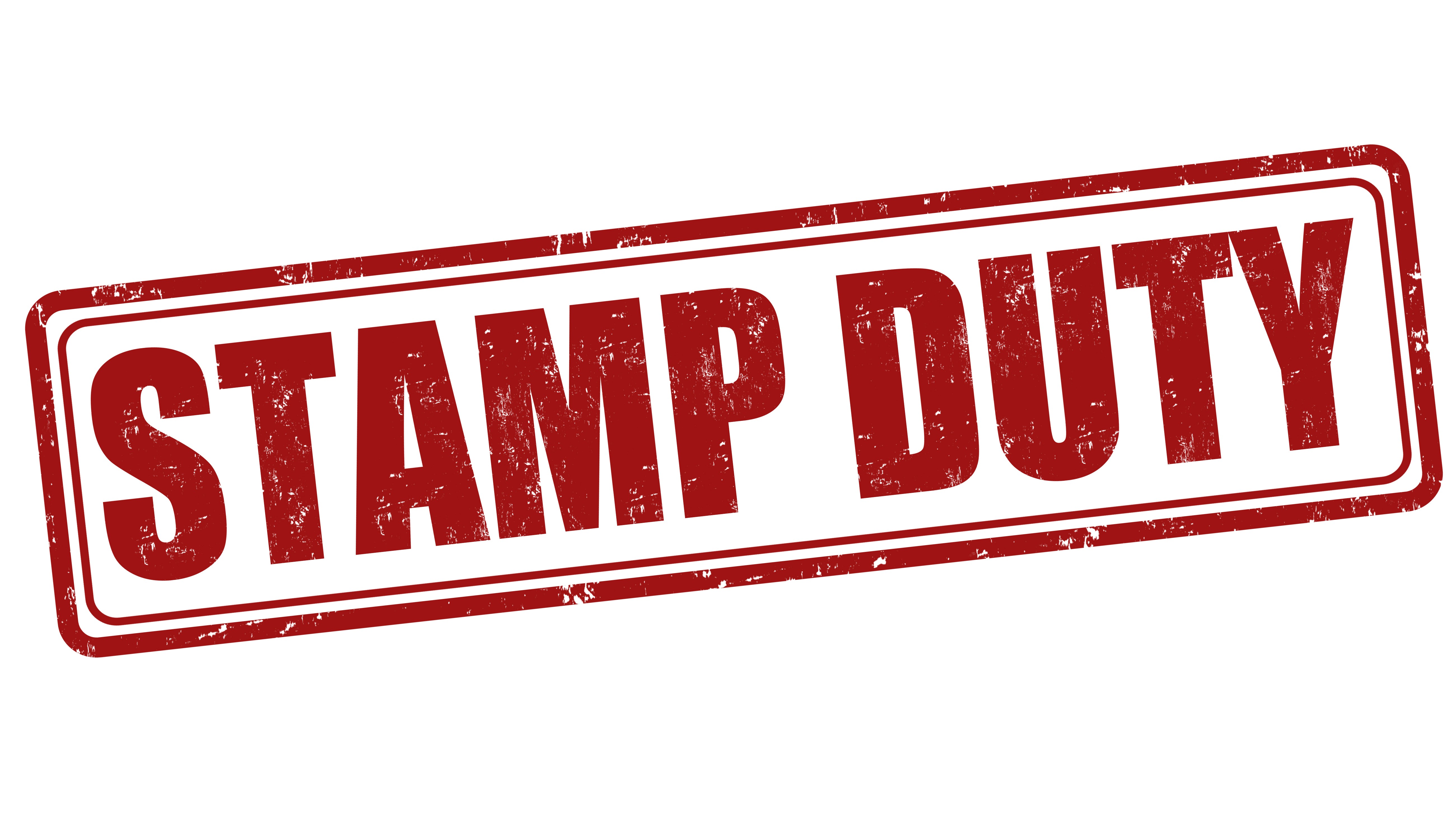
HIA’s Stamp Duty Watch report reviews the latest developments around stamp duty across Australia’s eight states and territories.
Read More
You have decided to take the plunge, but buying your first property is hard, so let's make it easier for you with this advice for first-home buyers.
Read More
While it is only natural for most people to want to sell their properties in the summer months, don't write off the cooler months completely.
Read More
If you’re looking for quick-fix interior design tips that will add high impact to your home’s aesthetic, check out our budget-friendly design hacks.
Read More
The Great Australian Dream is increasingly becoming a distant dream for millennials, and their personal choices may be their own undoing.
Read More
An increasing amount of millennials are saving for their first property foregoing their avocado toast, new research from Westpac has revealed.
Read More
Stamp duty is basically a tax that every property purchaser has to pay when they buy a house. it’s a payment you can’t avoid.
Read More
Australia’s property industry is setting the pace globally on sustainability and energy efficiency, but more still needs to be done.
Read More
If your kitchen needs a little TLC but you’re low on funds for a complete overhaul, why not go for one of these budget-friendly upgrades instead?
Read More
The next five years will see the most spending power of baby boomers eclipsed by millennials with a focus on buying apartments as their first home.
Read More
Housing affordability has improved across the country despite falls in Victoria, South Australia and ACT, , according to new research.
Read More
Your footy code preference may well influence where you end up living, according to new research by respected property market analysts Propertyology.
Read More
Recent figures from industry experts point out to the softening of Australia's housing market. The fall in prices would likely stabilise this year.
Read More
Pantone has named lavender as the hottest colour trend for interior design in 2018. You can expect to see this colour flooded across home designs.
Read More
Although home prices across Australia have eased from record-high levels, finding a house under $500,000 near the cbd can still be tricky.
Read More
“The finding that more than one in two Australians are not checking their bank accounts on a weekly basis at minimum is quite alarming..."
Read More
Millennials are among many Australians who feel that having a Pinterest-worthy home is key to their overall sense of self-worth and happiness.
Read More
Off-the-plan doesn't need to mean cookie-cutter. Here are a few ways you can personalise an off-the-plan home to make it entirely your own.
Read More
You have sold the house and found the new one! 44 tips on packing your house for sale. Here are some tips to help this crucial step go more smoothly.
Read More
When something as simple as decluttering and tidying up a little can make such a huge difference to our mental health...
Read More
It is important to set financial goals but often it is our financial fitness that is left by the wayside to be dealt with at another unspecified time.
Read More
People have enjoyed the companionship of animals for thousands of years, but can we protect their futures by leaving them property in our wills?
Read More
The Royal Commission has sparked a lot of controversy and debate about Australian lending policy and the ramifications will be lasting, says James Nihill.
Read More
The weather is getting cooler, but there's no need to abandon your outdoor entertaining spaces just yet. We share some outdoor tips with you.
Read More
The CEO of the Real Estate Institute of the Northern Territory, Quentin Kilian, said the budget could lead to more first home buyers flooding the market.
Read More
The survey underlined the popularity of home decorating with 62 per cent agreeing they put lots of time, effort and money into styling their living spaces.
Read More
Turn your home into a feel-good space with a mood-altering coat of paint. Different coloured walls can strongly influence a range of emotions.
Read More
A living room should be the heart of your home, a place to relax with loved ones. To ensure yours is a sanctuary, try these expert tips.
Read More
Making small changes in your life can fatten your savings and help you budget better. Follow these tips to save more money.
Read More
Prefabricated construction is more affordable and sustainable than traditional building methods. Is it the answer to Australia's housing crisis?
Read More
Off-market listings used to be limited to celebrities. The owners of off-market listings are willing to sell, but prefer to do it in a discreet way.
Read More
Strategies to avoid overspending on property include: being patient, avoiding auctions, buying a home in cheaper area, and buying a smaller house.
Read More
The persistent imbalance between strong population growth and the slow rate at which new housing stock is being delivered to market....
Read More
The persistent imbalance between strong population growth and the slow rate at which new housing stock is being delivered to market....
Read More
Several major banks have answered a call to clarify where broker allegiances lie, telling the royal commission that brokers act on behalf of customers.
Read More
Surrounding yourself and personalise your space with photos of your favourite people and special memories adds meaning and context to your home.
Read More
Property in Australia will soon be available online alongside groceries, household items and clothing thanks to a new partnership with China...
Read More
In a recent study it was indicated that a practical solution to solve the affordability crisis is to build an extra 50,000 homes annually for 10 years.
Read More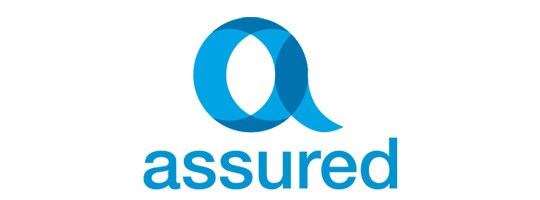

Your bathroom should be a space to relax. Take a look at these five ways a tub can make the bathroom your favourite room in the house.
Read More
The choice between renovating an existing home or upsizing is a decision that the majority of homeowners may need to contend with some stage.
Read More
A new survey, commissioned by State Custodians Home Loans, indicates that many Australians don’t fully understand the various commonly used home loan terms.
Read More
We tried a lot of frugal strategies with our kids during the first couple years of life. Some of them were big money savers and some weren’t.
Read More
Due to the growing unaffordability of many Australian property markets, many are turning to alternative means of purchasing property.
Read More
New research commissioned by gardening solutions firm Yates indicates that homebuyers now prioritise outdoor living spaces.
Read More
The Australian Competition and Consumer Commission is urging property buyers to consider switching their loan providers or negotiate for a better rate
Read More
There are many ways you can alter the appearance of your rental: a lick of paint, change the lighting, and add a touch of luxury.
Read More
Continued weakness in housing finance numbers is leading the banks to compete for market share by lowering interest rates...
Read More
New Research from the REIA and Adelaide Bank shows the number of first-home buyers in the market increased during the December quarter
Read More
The depressing outlook for wage growth in Australia may discourage property buyers but industry experts said there should not be any worry for now.
Read More
In its National Outlook for 2018, the Housing Industry Association of Australia said the supply of new homes is close to meeting the demand for housing
Read More
Exposure to toxins is an inevitable part of modern living. The good news is, many of these toxins can be purified from your great indoors with a pot plant.
Read More
A survey of 1,000 property owners revealed that once they found their property, 58 per cent spent less than 60 minutes checking out the property
Read More
Start saving today if you want to meet tomorrow's financial goals. TODAY is time to start to get conscious and think ahead.
Read More
The December 2017 Consumer Price Index figure continues to be good news for home buyers and renters according to the Real Estate Institute of Australia.
Read More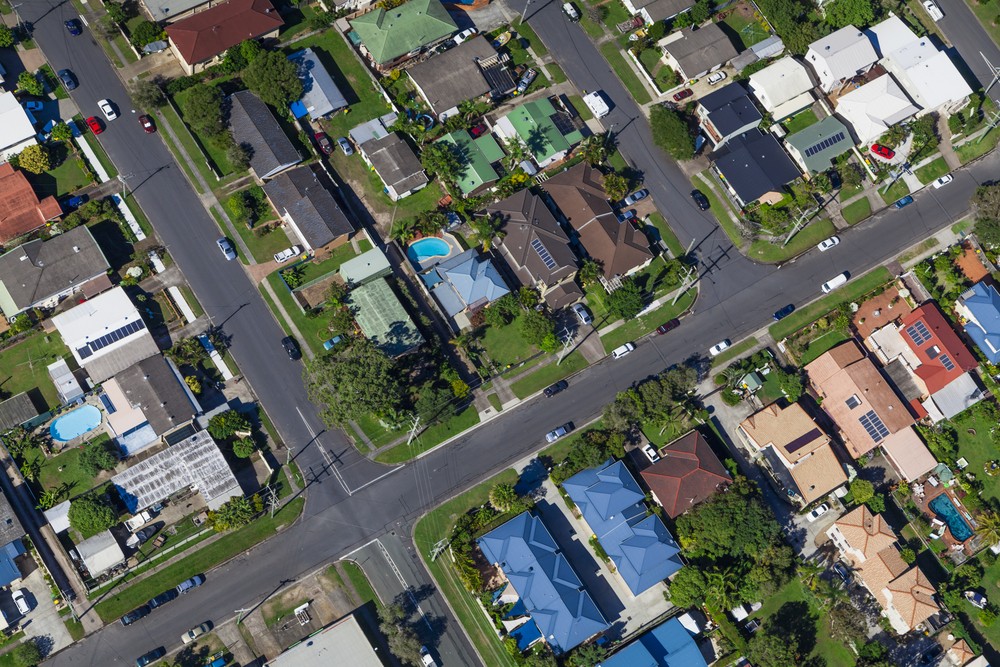
First-home buyers should do their own research and seek help when bidding at auction for the first time. Many potential owners remain fearful of auctions.
Read More
A new report released by the Australian Housing and Urban Research Institute confirms that negative gearing is not responsible for high home prices.
Read More
It's important to be considerate when you are celebrating Australia Day, particularly if you are in an apartment complex.
Read More
Despite the nation's softening housing markets, limited choices and escalating prices are forcing many Aussies to reconsider their options....
Read More
Thanks to the popular wellness movement, the bathroom is now considered a haven. Our interior designers share the new 2018 trends with you...
Read More
Saving for something special (or tapped out from buying it)? here's where to find hidden dollars around your home.5 sources of cash...
Read More
Keeping cool over summer is important, but you also need to know how to not spend a fortune on your power bill. Here are some ideas...
Read More
School holidays on a budget. Here are some MoneySmart ideas for cheap or free activities you could try with your kids during the school holidays.
Read More
The start of every new year brings a fresh opportunity for you to get your finances in order. We spoke to two money experts.
Read More
Loyalty is a good thing but when it comes to mortgage customers, they could be putting their money to waste by sticking with their banks.
Read More
The learning process of children today varies greatly to that of their parents
Read More
A few years back, my wife and I began experimenting with the concept of a money-free weekend to live more frugally.
Read More
Despite our property markets moving to the next phase of the cycle and property price growth slowing down, 60% believe now is a good time to buy property.
Read More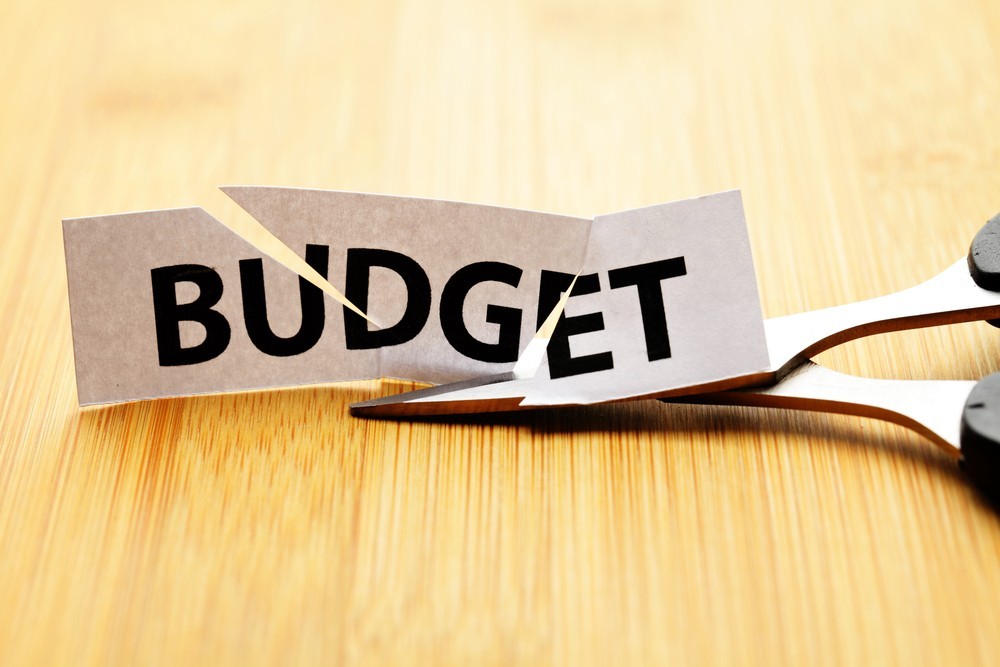
It's always good to save money. Check out our 6 cheap things that change your life.
Read More
New research confirms that for sea or tree changers, downsizing can offer a vary lucrative fresh start.
Read More
Want to save money AND stay healthy? Here’s how to manage both, without giving up on quality or quantity. Kill two birds with one stone...
Read More
While tiny homes are becoming increasingly popular, feeling cramped is never in style. To make a petite space feel open, try these simple decorating tips
Read More
Angus Raine, Executive Chairman of Raine & Horne takes a rear vision mirror look at how the residential property market has fared around Australia in 2017.
Read More
Demand from foreign buyers has been an important factor in the recent construction boom in Australia, and is expected to play an increasing role ...
Read More
The secret to keeping the floating bubbles in these champagne jellies is making sure your liquids are very cold
Read More
We have selected 7 attractive, easy care and compact trees that add value to your property.
Read More
The Australian housing market is a massive bubble that is about to pop, which will eventually drag banks and the economy down as house prices crash.
Read More
As money becomes ever tighter in Australia, here are four areas families can tighten up on to relieve the strain. We share 4 common budget black holes.
Read More
Property developers are failing to take notice of the needs of families living in apartments. Australia needs more family-friendly apartments.
Read More
At its meeting today, the Board decided to leave the cash rate unchanged at 1.50 per cent.
Read More
Your mortgage is one of the biggest financial commitments you’ll ever make. If you want to be debt-free more quickly, then check out these tips:
Read More
Here are some incentives and alternative deposit sources that might help make it easier to get into your first home sooner.
Read More
If you’re finding it challenging to qualify for a self-employed home loan, here are some tips that could make things a bit easier.
Read More
Before you head into your local branch to ask for a home loan, take a moment to consider some of the things that could impact your mortgage application.
Read More
You’ve vacuumed the floor, wiped down every surface and scattered the cushions just so. These hacks will help make your home as good for you inside as it looks from the outside.
Read More
The following outdoor renovation tips and tricks should give you a dose of inspiration when refreshing your property’s exterior.
Read More
The mortgage market is highly competitive and always changing. Here are some of the more common reasons why people choose to refinance their mortgages.
Read More
At its meeting today, the Board decided to leave the cash rate unchanged at 1.50 per cent.
Read More
Before you sign on the dotted line for any mortgage, consider the various types of home loans available and which might be best for you.
Read More
Kitchen is the centerpiece of your home, it’s a place for family and friends to come together. Kitchen renovations will add value to your home.
Read More
The real reason you can't stick to your budget is all about organisation. If money management isn’t your thing, Assured can teach you how to plan a budget
Read More
There are some definite pros to opting for a home loan from the Big Four banks, but also some major advantages in what smaller lenders have to offer.
Read More
A Principal and Interest home loan is a mortgage designed to allow you to pay off the amount you borrow by the end of the loan term.
Read More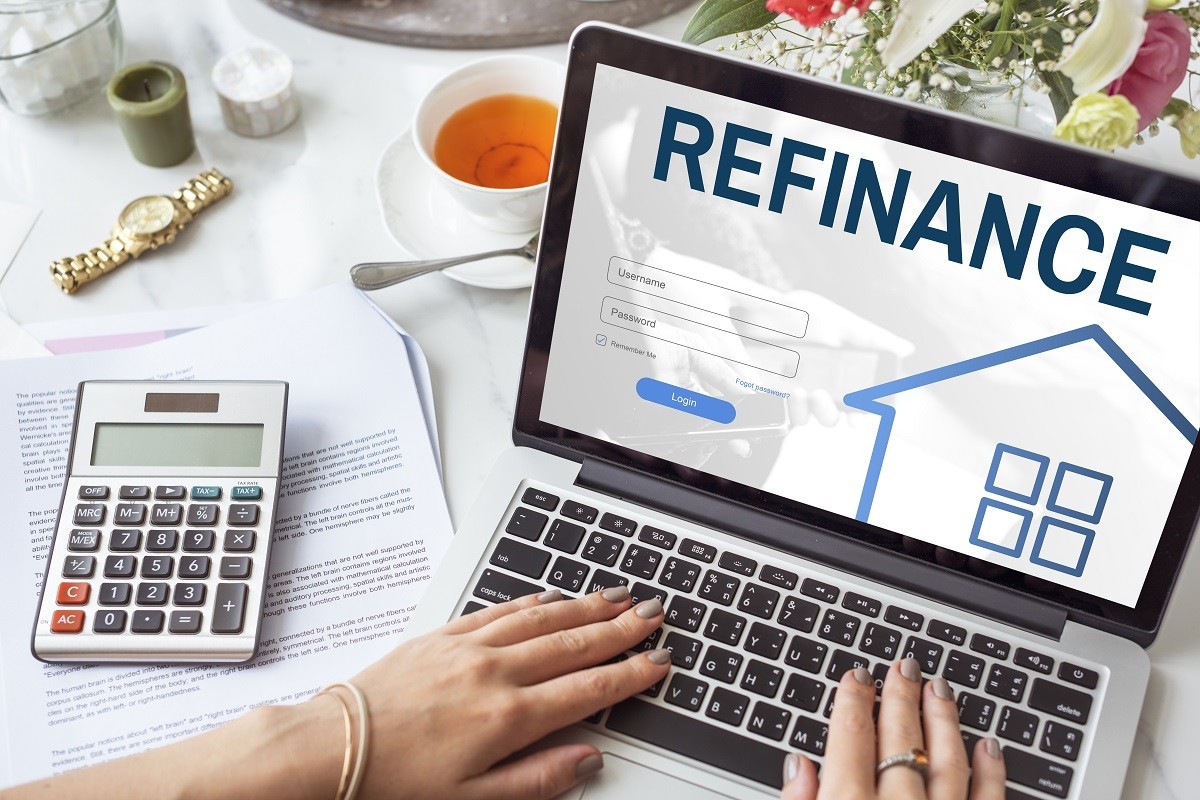
Should you refinance your home loan or stick to the one you already have? Some things to think about before making a decision to refinance your mortgage.
Read More
At its meeting today, the Board decided to leave the cash rate unchanged at 1.50 per cent.
Read More
One of the most common questions asked by property investors is: “where should I buy an investment property?”
Read More
One of the most common questions asked by property investors is: “where should I buy an investment property?”
Read More
Making a few small changes to the way you run your home and business can reduce your impact on the environment and boost your bank account.
Read More
As we gear up for the competitive spring selling season, there are three things you need to consider before listing your house for sale.
Read More
At its meeting today, the Board decided to leave the cash rate unchanged at 1.50 per cent.
Read More
Learn the keys to a successful DIY renovation & how to find the best tradies for truly professional results in these property tips from Assured Home Loans.
Read More
Learn the keys to a successful DIY renovation & how to find the best tradies for truly professional results in these property tips from Assured Home Loans.
Read More
Learn the keys to a successful DIY renovation & how to find the best tradies for truly professional results in these property tips from Assured Home Loans.
Read More
Learn the keys to a successful DIY renovation & how to find the best tradies for truly professional results in these property tips from Assured Home Loans.
Read More
Learn the keys to a successful DIY renovation & how to find the best tradies for truly professional results in these property tips from Assured Home Loans.
Read More
Learn the keys to a successful DIY renovation & how to find the best tradies for truly professional results in these property tips from Assured Home Loans.
Read More
The kitchen is not just a place where meals are created; the kitchen is the centre of family life.
Read More
Discover 7 ways you can start saving more money right now with these money saving tips from Assured Home Loans. Read our article to learn more about saving.
Read More
The aged pension is an unsustainable financial time bomb that may bankrupt the country in the years ahead, according to research by Propertyology.
Read More
Learn the keys to a successful DIY renovation & how to find the best tradies for truly professional results in these property tips from Assured Home Loans.
Read More
Learn the keys to a successful DIY renovation & how to find the best tradies for truly professional results in these property tips from Assured Home Loans.
Read More
Learn the keys to a successful DIY renovation & how to find the best tradies for truly professional results in these property tips from Assured Home Loans.
Read More
Learn the keys to a successful DIY renovation & how to find the best tradies for truly professional results in these property tips from Assured Home Loans.
Read More
Discover 7 ways you can start saving more money right now with these money saving tips from Assured Home Loans. Read our article to learn more about saving.
Read More
Learn the keys to a successful DIY renovation & how to find the best tradies for truly professional results in these property tips from Assured Home Loans.
Read More
Learn the keys to a successful DIY renovation & how to find the best tradies for truly professional results in these property tips from Assured Home Loans.
Read More
Keeping a budget is the best was to save money. Follow this step-by-step guide on how to create a budget that can help you achieve your financial goals.
Read More
Listen to Gary's top home loan tips, as heard on Adelaide Radio. Browse the archive to find expert advice on your question from Assured Home Loans' CEO.
Read More
Want to know more about investing in property in Australia? Whether you’re buying your 1st or your 5th, check out these sites for more useful information.
Read More
Understand the terminology mortgage brokers & investors use when we talk about property investing. Read our mortgage glossary & master the common terms used.
Read More
Discover all you need to know about residential mortgage options and what choices you have when selecting your lender and the loan features they offer.
Read More
Better manage your investment property to increase the amount of returns you receive and increase the amount of enjoyment you get out of your property.
Read More
Don’t get caught out with the ongoing costs when investing in property. Learn about the types of costs you are likely to incur and how to manage them.
Read More
Maximise your investment property income by having regard to your rental income and capital growth. Learn about how to your investment will make you money.
Read More
Find all you need to know about investing in residential property including where and how to buy, which type of property and how to maximise capital growth.
Read More
Anticipate and manage the common risks that are involved with property investment. Learn about these risks today, and be prepared for if they arise.
Read More
Take a look through Assured Home Loans' property investing guide to understand why investing in property is a great idea for creating financial success.
Read More
Follow our complete guide to property investing to ensure you maximise the success and enjoyment you get out of your property investment portfolio.
Read More
How much unclaimed super do you have hiding away? Assured Home Loans can report that Australians have $17.4 billion in unclaimed super that could be theirs.
Read More
Choose the best property investment strategy for you. Learn about the different strategies available and which is best suited for your financial needs.
Read More
Selecting the right investment property can be a difficult task. Discover what to look for when choosing the best investment property to suit your finances.
Read More
Increase your chances of getting your mortgage approved. Learn how to choose the right lender and how to prepare yourself when applying for a home loan.
Read More
Discover what a conveyancer does when you buy or sell property. Learn about how they protect your rights and help you meet all your legal obligations.
Read More
Learn the keys to a successful DIY renovation & how to find the best tradies for truly professional results in these property tips from Assured Home Loans.
Read More
Learn about how a mortgage broker works to get the best home mortgage solution for you. Discover what makes them invaluable when buying a home.
Read More
Learn more about what an offset account is, and how you can use it to pay less on your home loan. Discover whether an offset account is a good option for you.
Read More
Calculate how much home equity you currently have and find out how to best to increase it. Home equity is an asset, so learn how to get the most out of it.
Read More
Learn more about what lenders’ mortgage insurance is and why the banks sometimes require home buyers pay for it. Read Assured Home Loans' article for more.
Read More
Find out if negative gearing is the right strategy for you and your investment portfolio. Learn about how to get the most out of a negatively geared property
Read More
Learn exactly what is being quoted as the rental yield on a property’s sale listing so that you can better calculate your investment property’s potential.
Read More
Grow your personal wealth with a successful investment property portfolio. Learn how to get started investing in property with these 10 simple tips.
Read More
Work out how much money you will need before buying a house. Learn how to calculate how much deposit the bank requires and what other fees you need to pay.
Read More
While teaching your kids about money may seem like a daunting task, but with these tips from Assured Home Loans you'll have all the right information to impart.
Read More
Carve there perfect Christmas ham every time with help from celebrity chef Curtis Stone. Watch Assured Home Loans' video online to learn how.
Read More
Learn how to have an incredible holiday without eating away at your savings with these money saving tips from Assured Home Loans. Travel in style for less.
Read More
Learn more about what people mean when they talk about good debt vs bad debt. Secure your financial future by ensuring you choose good debt over bad.
Read More
Discover why it is important to pay your mortgage repayments on time every time, & how to ensure you consistently make your deadlines with Assured Home Loans.
Read More
Learn how to double your home deposit in just half the time with these money saving tips from Assured Home Loans & get into your new home even faster.
Read More
Learn how to save money by comparing credit card options with these money saving tips from Assured Home Loans. Pick the right card for you with our advice.
Read More
Create effective budgets you can keep with these money saving tips from Assured Home Loans. Master the art of budgeting & start saving more today.
Read More
Find out why ignoring home security could spell disaster for your property. Read these property tips from Assured Home Loans to learn more about home security.
Read More
Discover how to better manage your financial troubles and stop them from hurting your relationships with this five point plan from Assured Home Loans.
Read More
Winter is coming, & you won't want to "leaf" it too late to prepare your property for the cold months. Learn how in these property tips from Assured Home Loans.
Read More
Compare the difference between fixed & variable home loans & what each of them could mean for your mortgage repayments in the future with Assured Home Loans.
Read More
Jamie Durie, internationally acclaimed horticulturalist and landscape designer, shares his best tips for designing a beautiful garden for any home.
Read More
Download our How to Dump Your Debt eBook & learn to get your debt under control. Our book is full of money saving tips to get you out of the red & saving again.
Read More
Find out why the much-hyped supermarket wars will only save you a measly $6 & whether there's any real benefits with these insights from Assured Home Loans.
Read More
Cut down on time-consuming house hunting habits by identifying where you can become more efficient. Discover where most people go wrong and maximise your time.
Read More
Learn how to save money on food without compromising on taste with these money saving tips from Assured Home Loans. Read our advice for more information.
Read More
Learn how to avoid the January blues with these money saving tips from Assured Home Loans. Survive the holidays & start the new year off right with our tips.
Read More
Read the best of Gary Williams' top home loan tips here. As the CEO of Assured Home Loans, Gary loves sharing his extensive knowledge about home loans.
Read More
Taking a few minutes to look over your home loan rate could save you thousands of dollars. Discover what to look for in your loan statements today.
Read More
Find out why it's so important to keep on top of your bills & get some great advice on how to do it with these money saving tips from Assured Home Loans.
Read More
Learn how to prepare a budget that accounts for all your expenses while allowing you to save more with these money saving tips from Assured Home Loans.
Read More
Find local discounts across Adelaide and Australia. Don’t spend full price at your favourite retailers, cafes and service providers with these coupon sites.
Read More
Could solar power save you money - & the planet? Read these money saving tips from Assured Home Loans to learn more about saving money with solar panels.
Read More
Get all the facts you need to decide whether frequent flyer cards are worth it for you with these money saving tips from Assured Home Loans.
Read More
Learn how to avoid a post-Christmas financial hangover with these money saving tips from Assured Home Loans. Survive the holiday season with our financial tips.
Read More
Find out why throwing away food is just like throwing away money - and how you can cut it out - with these money saving tips from Assured Home Loans.
Read More
Learn how to protect your passwords and PINs to improve your financial security & hang on to your cash with these money saving tips from Assured Home Loans.
Read More
Find out how to spend smarter this Christmas with these money saving tips from Assured Home Loans. Make the most of the holidays with money left in January.
Read More
The coming of winter provides plenty of opportunities to spend, but there are ways to save too. Read these money saving tips from Assured Home Loans for more.
Read More
Get in shape in the new year without overspending. Learn how to save money on your New Year's Resolution with these money saving tips from Assured Home Loans.
Read More
Find out why neighbourly love protects properties over Christmas & how you can keep your home safe with these property tips from Assured Home Loans.
Read More
Losing your documents to a fire or flood can create a lot of problems down the track. Learn how to secure your important information from any disaster.
Read More
Learn the fundamentals of home renovation & what type of renovation is most suitable for different purposes with these property tips from Assured Home Loans.
Read More
Learn how to save more money while you save the environment with these pocket-friendly, eco-friendly money saving tips from Assured Home Loans.
Read More
Discover 9 ways to brighten any room on a budget with these money saving tips for Assured Home Loans. Add more life to your home without breaking the bank.
Read More
Create a beautiful luscious garden that thrives even in the Australian climate. Discover ways to save water whilst also keeping your plants green and healthy.
Read More
Knowing the best approach for pricing & selling your property over summer can be tricky. Read these property tips from Assured Home Loans for more information.
Read More
Travel insurers have a lot of fine print in their policies. Discover 5 common reasons why they will refuse to pay and how to make sure you’re not caught out.
Read More
Whether it is your 1st or 5th home, discover how to make buying your new home as easy and enjoyable as possible by following these 16 steps. Learn more.
Read More
Make sure you ask yourself these five key questions before buying a home. Read these property tips from Assured Home Loans to get the important questions.
Read More
Learn 5 ways you can save an extra $500 a month starting right now with these money saving tips from Assured Home Loans - that's $6000 a year!
Read More
Learn how to set a budget for your holiday gift spending - and actually stick to it - with these money saving tips for Christmas from Assured Home Loans.
Read More
Learn how to avoid impulse spending with these money saving tips from Assured Home Loans. Resist the temptation of advertising & sales with our advice.
Read More
Find out where you can cut down on your living expenses without cutting down on your quality of life with these money saving tips from Assured Home Loans.
Read More
Reduce your monthly mobile phone bill with these money saving tips from Assured Home Loans. Read our 7 easy tips for saving on your mobile phone here.
Read More
Discover five ways you can slash the premiums on your health insurance & save more money per month with these money saving tips from Assured Home Loans.
Read More
Don't get stung at tax time. Follow these money saving tips from Assured Home Loans for five easy ways to pay less tax & save more money at the end of the year.
Read More
Sort out your finances for when you die and ensure your family is looked after. Follow these steps to ensure that all your affairs are in order.
Read More
Protect your finances from future interest rate rises with these simple tips. Plan your borrowing strategy better and be prepared for any fiscal changes.
Read More
Protect your credit card details from thieves, discover how to check your account for fraudulent activity & how to safeguard your money with Assured Home Loans.
Read More
Save money on those expensive utilities bills with these handy hints. Learn how you can reduce your power and water bills today with Assured Home Loans.
Read More
Learn some easy ways you can reduce your home bills with these money saving tips from Assured Home Loans. Run your house for less with our advice.
Read More
Learn how to manage your debts & pay off your loans faster with these money saving tips from Assured Home Loans. Reduce your debt faster with our advice,
Read More
Tackle your growing debt and manage your finances with the Debt Snowball Plan. Learn how to shape your behaviour and pay off your debts quickly.
Read More
Learn Angela's everyday money saving system & start taking control of your personal finances with these money saving tips from Assured Home Loans.
Read More
Discover how you can find free items on Gumtree with these money saving tips from Assured Home Loans. Pick up a bargain with these clever Gumtree tips.
Read More
Become a master of your personal finances with these 100 ways to save money from Assured Home Loans. Read our 100 money saving tips to learn more.
Read More
Achieving your dream home can come about in many different ways. Find the solution that best suits your lifestyle dreams and your financial goals.
Read More
Save more money with professional advice from the experts at Assured Home Loans. Read these money saving tips & learn from our experienced mortgage brokers.
Read More
Find out how to have a stress-free tax time without any unexpected costs with these money saving tips for the end of financial year from Assured Home Loans.
Read More
Learn how to keep track of your superannuation & the ways you can get even more out of your super with these money saving tips from Assured Home Loans.
Read More
Discover why trying to keep up with your neighbours’ expensive purchases may be the worst behaviour for your finances and what you should do instead.
Read More
Discover 100 ways to help you begin saving money. Whatever your financial situation, these simple tips are designed to help everyone spend their money wisely.
Read More
Discover 5 easy ways you can ruin your finances if you're not careful, & how to avoid them with these money saving tips from Assured Home Loans.
Read More
Find out what to do when you come into some extra money that can yield the best long term benefits. Maximise your extra cash today with these simple ideas.
Read More
Master the fine art of negotiating when buying property with these money saving tips from Assured Home Loans. Negotiate a better price with our advice.
Read More
Learn why Australia is going through a current housing shortage that is set to affect thousands of people and what the future will look like for Australians.
Read More
These are the top 5 ways for paying down your mortgage quicker. Find financial freedom quicker with these tips that could help you cut years off your home loan.
Read More
Learn how to keep track of your expenses on the go no matter where you are with the TrackMySpend app. Assured Home Loans explains how it works here.
Read More
Save money eating out! Find out which of your favourite take-out foods are cheaper when bought pre-cooked compared to making at home from scratch.
Read More
Pick up 9 great tips to make saving money a habit with Assured Home Loans. Read these money saving tips to start taking control of your personal finances.
Read More
Learn how to transform unused spaces in your garden to improve the aesthetics & value of your home with these property tips from Assured Home Loans.
Read More
Learn how to reduce the cost of your weekly grocery bills with these money saving tips from Assured Home Loans. Save more on food & everyday items.
Read More
Find out why waiting for Spring to come before you sell may not be the best strategy to get a great price with these property tips from Assured Home Loans.
Read More
Selling property over the Christmas can have its distinct advantages. Discover why some argue this is one of the best times of year to sell.
Read More
Learn how to save big on groceries by outsmarting the supermarkets with these money saving tips from Assured Home Loans. Find your advantage with our advice.
Read More
Learn how to reduce the costs of owning a car & driving with these money saving tips from Assured Home Loans. Get more from your car without breaking the bank.
Read More
Whip up amazing family meals on a budget with these money saving tips from Assured Home Loans. Learn how to cook on a budget & save with our top tips.
Read More
Get amazing ideas for cheap holidays with these money saving tips from Assured Home Loans. Find out where to travel & what to do to get a great bargain.
Read More
Learn how the super-rich manage to avoid paying the tax man & discover how to use some of their tricks to pay less tax come tax-time with Assured Home Loans.
Read More
How to sell your property so that your potential buyers fall in love with it. These tips will help you prepare your home to best appeal to the market.
Read More
Find out how you can get 50% back on your education expenses with these money saving tips from Assured Home Loans. Check out our advice for more information.
Read More
Compare the advantages and challenges of building a new home to buying an established home and discover which option would be better for your next property.
Read More
Discover the 10 best apps for iPhone that can save you money with these money saving tips from Assured Home Loans. Read our iPhone app reviews here.
Read More
Find out whether renovating your property before you sell will actually pay off & improve your returns with these property tips from Assured Home Loans.
Read More
If you plan to sell your property, you're probably wondering whether you should auction or not. Read these property tips from Assured Home Loans to find out.
Read More
Handy tips for renovating your bathroom to ensure that you will still love it in five years. Design a bathroom that will help you sell your home.
Read More
First home buyers - get all the important information you need to know with these money saving tips from Assured Home Loans before you buy your first house.
Read More
Are you a terrible saver? Fear not, you'll soon be saving money & mastering your personal finances with these money saving tips from Assured Home Loans.
Read More
Become debt free as quickly as possible with these 10 easy-to-follow tips that will help you take control of your finances and pay off your home sooner.
Read More
Learn how you can reduce your debt & get your personal finances out of the red & into the black with these money saving tips from Assured Home Loans.
Read More
Increase the value of your home with these home renovation ideas. Discover which parts of your house to invest in that will generate the best returns.
Read More
Discover why recent research indicates Autumn is the best time to put your house on the market, and what makes it better than the popular Spring season.
Read More
Get all the right information before undertaking a home renovation for the first time. Assured Home Loans has all the property tips for first time renovators.
Read More
Learn all about shopping on the internet with these money saving tips from Assured Home Loans. Discover how to find great bargains online with our tips.
Read More
Know when to move, redesign or renovate your property. Read these property tips from Assured Home Loans to understand which option is best for you.
Read More
Find out how you can break your bad money habits with these money saving tips from Assured Home Loans. Master good financial habits in no time with our advice.
Read More
Increase the amount of benefit you get out of loyalty cards by following this simple advice from Assured Home Loans that can save you some money.
Read More
Learn about the risks & costs of identity theft as well as the steps you can take to protect yourself with these money saving tips from Assured Home Loans.
Read More
For everything you need to know about lighting your home perfectly, read these property tips from Assured Home Loans. Learn more about home lighting here.
Read More
Learn the best ways to save money that are so simple that you can start this week. Continue every week to help you achieve financial success in the long run.
Read More
The Greek financial crisis has an impact on countries and people all across the world. Find out what it could mean for Australians directly and indirectly.
Read More
Save a bigger home deposit with these 6 simple tips from Assured Home Loans and set yourself up for financial success. Read our article to learn more.
Read More
Discover the best smart tips for saving for a new home compiled by our experienced mortgage brokers with these money saving tips from Assured Home Loans.
Read More
Find out how to create a learning zone in your home with Assured Home Loans that will maximise efficiency and encourage learning for you & your family.
Read More
Find out what prudent lending is and what it means when you are looking to apply for a home loan. Learn more in this guide from Assured Home Loans.
Read More
Adelaide has made headlines again for being one of the best places in the world to live. Discover what the UK’s Sunday Times loves about Adelaide living.
Read More
Discover what it means for your loan to have a redraw facility and how it gives you added financial flexibility. Learn more about this mortgage feature today.
Read More
Check out Assured Home Loans' top 10 frequently asked questions about home loans to discover more ways you can save. Read our FAQs for more information.
Read More
Learn about how an Offset Redraw Account can help you maintain financial health whilst also paying off your home loan. Find out more from Assured Home Loans.
Read More
Boost your property value with this simple $100 renovation that anyone can do. Increase the value of your home by up to $20,000 with this clever idea.
Read More
Discover what Labor’s ‘tick and flick’ bank switching plan means for consumers and why it is welcomed by both Australia's banks and their customers.
Read More
Improve the value of your home with a beautifully landscaped garden. Discover what simple things to do to your yard that will help sell your property.
Read More